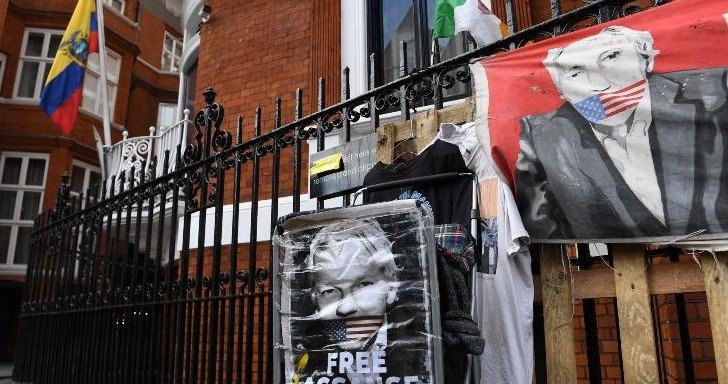Recent reports say Donald Trump’s administration offered pardon to WikiLeaks founder Julian Assange if he reveals the source of email leaks belonging to the Democratic National Committee prior to the 2016 election.
This weekend Jennifer Robinson, Assange’s lawyer mentioned that in 2017 a meeting was held with Dana Rohrabacher, former member of the Republican Party and Charles Johnson, a prominent member of Trump’s presidential campaign, a meeting that led to the offer of pardon for Assange.
Assange’s defense also mentioned that the meeting was conducted with the endorsement of the then U.S. presidential candidate, mentioning to the activist that Trump would meet with him if he accepted his offer.
“Assange should have revealed the origin of the pre-election leaks in exchange for some form of pardon; Republican reps assured us that this would be a win-win solution so my client could get on with his life,” Robinson added.
Throughout the 2016 election contest, WikiLeaks published multiple documents that damaged the image of Democratic candidate Hillary Clinton, including emails from the Democratic National Committee. This information was reportedly obtained through various hacking campaigns sponsored by the Russian government in an attempt to exert influence in the U.S. presidential election.

The Russian government denied any attempted intervention, just as Trump denied any kind of connection to these allegations, and the U.S. government’s special investigation failed to determine Trump’s relationship with the hacking, although he did confirm the intervention.
At this time Assange is being held in a British prison trying to prevent his extradition to the U.S., where he is charged with conspiracy charges to hack into government computers, as well as violating an espionage law with the WikiLeaks platform, crimes that could reach a sentence of up to 170 years.
In this regard, Assange’s defense argues that all of his journalistic activities are protected by the U.S. Constitutional First Amendment, so he faces a politically motivated trial that calls into question freedom of expression and the press.
He is a cyber security and malware researcher. He studied Computer Science and started working as a cyber security analyst in 2006. He is actively working as an cyber security investigator. He also worked for different security companies. His everyday job includes researching about new cyber security incidents. Also he has deep level of knowledge in enterprise security implementation.
